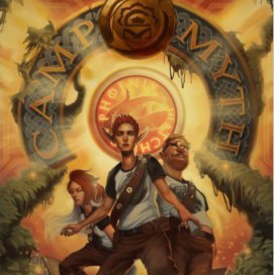 OBIR: Occasional Biased and Ignorant Reviews reflecting this reader’s opinion.
OBIR: Occasional Biased and Ignorant Reviews reflecting this reader’s opinion.

AUGUR MAGAZINE issue #7, Vol. 3 No. 1.
Publisher: Kerrie Seljak-Byrne, Augur Magazine Literary Society, Ottawa, Ontario, Canada.
Editor in Chief: Alexander De Pompa. Managing Editor: Lawrence Stewen, Senior/Poetry Editor: Terese Mason Pierre. Graphic Fiction Editor: Amy Wang. Editor: Victoria Liao. Junior Editor: Vivian Li.
Cover Art: Lorna Antoniazzi.
EDITORIAL:
grief and gateways – by Alexander De Pompa
Review:
Exciting news. First, this is Augur’s first issue paying SFWA pro-market rates. Second, Augur is planning a sibling publication, Tales & Feathers, “a pro-paying slice-of-life fantasy flash fiction magazine.” Third, later this fall they plan to host online the Canadian Speculative Fiction and Dreamy Realism Festival “to celebrate Canadian and Indigenous speculative fiction.” Good news all around.
FICTION:
prism – by S.D. Brown
Premise:
An inmate in an American woman’s prison endures cruel hardship similar to contemporary news events. Life is unbearably difficult, a kind of living death, but she finds a way to escape, sort of.
Review:
The content description ahead of the story gives away key elements of the plot. Not something I would do as editor of my Polar Borealis Magazine. But Augur does this as part of their overall philosophy of publishing, and even though I personally find it annoying, no doubt many readers appreciate the practice, so I’ll say nothing more.
At first the story reads like a dark and hard social-realism tale. As such it darts successfully back and forth between past and present to lay out the history of the character and her damaged life in ever-increasing detail which gradually heightens the reader’s empathy for her. One longs for her to escape. The fantasy element enters, or perhaps I should say the magic-realism takes hold, and a miracle occurs, arising from her own passion and creativity, which is very satisfying. Except that it resembles the proverbial deal with the devil, in that the miracle has limitations which add to the suffering as much as it offers hope. A painful and powerful story, though not as much as the equivalent situation in contemporary life, sad to say.
divining manëtuwàk at the banks of the wabash – (poem) by D.A. Lockhart
Premise:
A First Nations individual visits ancestral land seeking a spiritual connection with ancestors.
Review:
The author is an Ojibway citizen of the Thames First Nation near London, Ontario. However, the ancestral land in question appears to be the pre-Columbian mound city of Cahokia in Illinois. Given that the Ojibway migrated north from what is now the Eastern United States, I surmise the modern Ojibway regard Cahokia as possibly their ancestral home, in spiritual terms if not literally. Regardless, the poem is a beautiful summation of the sort of ritual required to commune with one’s ancestors.
flowers of cerrado – by H. Pueyo
Premise:
Brazil is under siege by a great evil that consumes everything and everyone. Priscilla is given a healing power by a supernatural entity to help those who are hurting, but she has no power to combat the evil that inflicted their wounds. Being pregnant is a bit of a handicap. She finds her condition somewhat distracting.
Review:
A complex story based on Brazilian folklore, a subject about which I know nothing. Doesn’t matter. Enough detail is provided to make the story credible within the background context. Mind you, it’s a bit difficult to identify with a miracle-working Saint, which she isn’t, but that’s how other characters view her, yet her matter-of-fact practicality in putting up with the hand she’s been dealt has a certain appeal. The point of the story, which her character represents, is something I already believe, so that adds veracity from my point of view. It’s a story with a life-affirming moral. Or, at least, in a dream-like fashion it offers clues on how to cope with one of life’s harshest realities. To get what I mean, just pay attention to how the evil is described. This story presents a different culture’s take on the subject. I find it fascinating.
his dream – (poem) by James Collier
Premise:
Reminiscence of a young lover long since dead.
Review:
Stark, violent imagery conveys a sense of loss well enough, but the language evidences no tenderness or compassion. But then the poem is very short, and focused on the anguish of an abrupt, tragic parting. Or to put it another way, focused on the loss, rather than on what was lost. Probably quite deliberate. Including kinder memories would have weakened a poem that is essentially an outraged cry of pain.
what lies within – by Isha Karki
Premise:
Swarna, a young Hindu woman in India, is wooed by a ship’s Captain from a foreign land and agrees to marry him. A sumptuous, comfy bed is built for the newlyweds aboard the ship and later transferred to their new home in the husband’s homeland. To her dismay, she finds the bed increasingly uncomfortable.
Review:
I assume this story is a metaphor re: India’s loss (and ongoing loss) as the consequence of British conquest. “Swarna” means “Gold,” so no wonder the Captain views her as his priceless “princess.” He’s willing to do anything for her, providing she adapts wholly to the customs of her new country which may be England or perhaps Western civilization in general. She longs for her mother’s cooking, particularly Kalo Chana, an Indian curry made from black chickpeas. You might say chickpeas loom large in her life.
This is not a story about cultural appropriation, or even theft. More like a tale of cultural dismissal. Forget your culture. It means nothing. If you want to be loved, adapt, change, and forget. Above all, become different from what you were meant to be. Which is why I consider basing this tale of India’s loss on Hans Christian Anderson’s The Princess and the Pea a particularly deft bit of cultural appropriation in order to criticize a dominant culture that can’t be bothered to appropriate anything other than the resources it covets. Nice touch of irony that adds bite to the underlying message.
Yes, I know there were many whites who “went native” and made a passionate study of Indian art, architecture, religion, philosophy, and what-have-you. It can be argued that is in itself a form of theft. My point is the phenomenon of appreciating conquered culture is pointless in regard to the overall theme which, in my mind, remains valid. The conquered don’t just become resident aliens in their own land, they are forced to become imitations of the conquerors. This is the best they can hope for.
You might think this may be a satire. On the contrary, it is a horrific tale of anguish and suffering. A genuine horror story. And that’s the whole point. Adds new meaning to the phrase “Love conquers all.”
out of myself – (poem) by Manahil Bandukwala
Premise:
A bird is growing two heads.
Review:
The author is Pakistani in origin and possibly the story is inspired by that nation’s folklore. I don’t know. I suspect the poem has something to do with reconciling two or more selves within the self, or perhaps dreaming of unity in a relationship. I confess I can’t make up my mind. One thing for sure. This creature will not be passive once it is fully grown.
she lies an island – by Michelle Payne
Premise:
An Irish giantess, a sort of forest ogre-fairy, is felled by arrows when she stumbles across a hunter encampment. This being modern times, everyone on Earth is astonished. Her massive body is transformed into a tourist attraction. Blair remembers her Gran’s tales of befriending such a creature long ago. Blair feels compelled to visit the dead giantess to honour Gran’s memory.
Review:
The mythical “they” say every legend has a basis in fact. What if the truth behind the legend of the unicorn is not rumours of rhinos or narwals but rather the presence of a herd of unicorns in a hitherto-unexplored forest? Even true believers would be amazed. Hence one of the charms of this tale is the reaction of sceptics in government and science to the confirmed existence of the giantess. Every square foot of Ireland is promptly searched for her lair, her relatives, and any evidence of supernatural beings in general. Then the scientific theories to explain it all spring up like mushrooms. Meanwhile, entrepreneurs quietly go about their business exploiting her corpse.
In all of these coping mechanisms something is lost, namely the original faith in half-hidden magic-lore that offered more than mere facts. Perhaps the point of the story is that confronting the reality of what one believes destroys belief. The focus on Blair keeps things on a personal level, however, and gives the reader hope humans can cope with just about anything. On the other hand, maybe it’s a commentary on our innate ability to turn the exotic into the mundane. Maybe that’s our superpower survival trait. This story not only entertains but makes one think. I rather like it.
the stone circle – (poem) by Isobel Granby
Premise:
A village man dreams of evoking the magic of the ancient stone circle atop a sacred hill.
Review:
Not one of those “be careful what you wish for” stories. More a study of longing for something devoutly to be believed if only it were true.
diptych of summers past – (poem) by Isabel Yang
Premise:
An older woman remembers young summer affairs long past.
Review:
Memories serve to relive life that can no longer be lived, but are well worth remembering. Memory can be a solace, especially when details remain vivid and strong.
keeping her – by Sheila Massie
Premise:
A young woman discovers her deceased newborn daughter lives as a ghost in the family home. She seeks to make them both happy by uniting her with her corpse.
Review:
A disturbing, almost unbearably heart-rendering tale of how even the best and most loving of intentions can turn grief into nightmare. This isn’t just horror fantasy, it reflects something very real that lurks behind the blandest of feel-good cliches. My own life experience (just a portion of it, mind you) makes it very easy for me to identify with the girl’s hopes and dreams, but also her despair and disappointment. Call it an example of idealism being confronted by reality. A neat trick to pull off in fantasy.
Love can heal and accomplish so much, but it can also be devastatingly futile. A powerful, painful story. Not an easy read. To those who have yet to experience the full gamut of what life offers, it will seem exaggerated and morbid. To those who have lived long enough to recognize what I am writing about, it will seem terrifyingly familiar, up close and personal. This story strikes home like an arrow through the heart.
I’m deeply impressed, but must admit I never want to read it again. Frankly, I don’t like my emotions being stirred at so extreme a level. This short piece of fiction reminds me the last time reality was so cruel to me and someone I loved. It means too much, so to speak.
Objectively speaking, I’d say this well-written horror fantasy describing the sad side of the human condition in a masterly fashion. It is a superb story, but one that leaves me immeasurably sad. Briefly. The fact it is “mere” fiction is a great relief. Besides, life has taught me how to cope and rebound. Can’t help but wonder how other readers will be impacted. It may be fiction, but it is solidly grounded on emotional reality.
crochet rest – (poem) by Jade Riordan
Premise:
A sleeper, a non-dreamer, dormant.
Review:
No idea what this poem is about. A goddess? One of the fates? Ourselves as victims of our own life arc? Can’t get a handle on it. Certainly a poetic vision of a state of non-being, possibly at a cosmic level. Have no concept what, if anything, is being advocated. For me, a puzzle. Others may understand better than I.
the city we live on – by Sydney Henderson
Premise:
Marion’s full-grown son has gone missing. She is forced to attend a grief-counselling session at a nearby church. It is the citizen’s duty, after all, to work through the grief as quickly as possible and accept the inevitable, even though no one has any idea why and how so many have gone missing.
Review:
At first it struck me as a parody of social norms in regard to grief. For a number of reasons, such as limited resources, the ongoing culling of the citizenry actually has a positive side. Further, no one can think of how to prevent it, so why not just accept it? Social propaganda serves a purpose after all. At the very least to reinforce the status quo and convince people not to question. The system, any system, works so much better that way.
But Marion is dissatisfied. She wants an explanation, Better yet, she wants revenge. This is when the story shifts from sociology to old-fashioned science fiction, providing both explanation and opportunity, at least to a degree. A full explanation is not provided, but enough is hinted at to justify Marion’s actions, at least in her own mind.
I suppose I could interpret this story as a metaphor for current events, but I won’t bother. I like it as an old-style glimpse of a distressing dystopia where people occasionally become heroes in an effort to defeat or deflate routine oppression. It’s an ancient conundrum. Obey? Or rebel? What does either get you? You make your choice and take your chances. Life’s a gamble. One thing governments should always bear in mind. If people are pissed off they become willing to decide what it is they really want. This story points makes that clear.
abeona, goddess of outward journeys, hits the glass ceiling – (poem) by Nisa Malli
Premise:
An A.I. created to serve humanity is under-appreciated.
Review:
This A.I. has suffered the fate of many a human. A science-fictional object lesson. Not that anything can be done about it. Has an element of humour to it.
the myth of the wound sealer – by Lia Binte Sidin
Premise:
Junaid is an arborist called in to heal an elderly lemon tree. Sayf, the landowner, had applied his own remedy which made things worse. Seems to be something wrong with Amani, his wife, as well. Jun feels compelled to help both.
Review:
This story appears to be based on Malaysian folklore. On the grounds that trees heal around wounds and ultimately hide them within, it is a charming concept that one can whisper one’s most painful secret to a tree and it will absorb it to conceal it forever, freeing the individual from the burden of carrying it within their soul and thoughts. But what if the tree itself has a secret? To whom does it whisper?
I regret I don’t fully understand the relationships in this story. Comes from being too literal minded I suppose. The supernatural is involved, along with more than one secret, and there is a resolution, but I am unclear on what the ultimate consequences will be. I gather our ill treatment of nature reflects our ill treatment of each other, and that respecting nature will improve our relationships with each other, but I can’t tease out any meaning beyond that. Something about cultural constraints and inhibitions not necessarily doing us any favours, perhaps. Yet, at the same time, some tradition may contain practical wisdom that should not be ignored. Perhaps the underlying message is simply that all life has meaning. A thoughtful, dream-like tale.
re-wilding – (poem) by Tiffany Morris
Premise:
Experiencing the chaotic tumult of life.
Review:
You want to survive? Think how animals do it.
cyclic – (graphic comic) by Jade Zang
Premise:
Two goddesses question their origin and purpose.
Review:
Pretty much reflects the musings of us mortals, and the answers they come up with are applicable to us as well.
Drawn in a pleasingly precise style with a dark palette that suits the night and the ocean that constitute the setting. Some highly evocative imagery, in particular a panel which aptly captures the difficulty of holding one’s head high enough above the water to breathe. It conveys exactly what that’s like, makes it real. Beautiful art, but in a quiet, understated manner. The imagery reflects the dignity and profundity of the dialogue. It’s all of a piece, and well thought out.
CONCLUSION:
As you may have guessed, the theme of this issue is “loss.” Overall could have been quite depressing, but the exceptional quality of the writing makes it more of a treat (apart from one story that knocked me end over end emotionally, but for entirely personal reasons). Augur Magazine has been going from strength to strength with every issue. Definitely never the “same old same old.” Always something innovative, or striking, or both. There’s a reason Augur was nominated for an Aurora this year. I expect them to win it eventually. They certainly deserve an Aurora Award. First class all the way.
Check it out at: < augur 3.1 >









